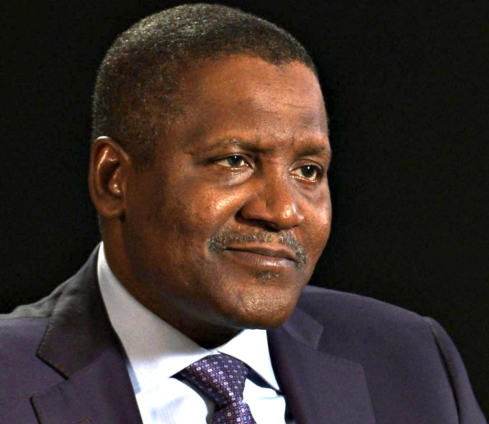There are 54 countries in Africa. More than 20 produce oil and five of these countries are part of the world’s 30 oil-producing countries.
However, only two countries in Africa do not import oil.
In 2019 Africa accounted for more than 7.9 million barrels per day, which is about 9.6 per cent of global output.
Between 2005 and 2010, however, oil production in Africa rose to nearly 10 million barrels per day.
Speaking on Sunday, June 18, at the opening of the 30th Anniversary of the Afreximbank Annual Meetings in Accra, Ghana, the businessman, Aliko Dangote, pointed out that even though there are oil-producing countries on the continent, only two countries, Algeria and Libya, do not import oil.
Dangote who was speaking about the importance of free movement and intra-Africa trade, said: “We are importing poverty and exporting jobs.” He said that in relation to the fact that African countries continue to export raw materials.
He also expressed concern about the difficulty of travelling around the continent.
He said he has an African passport and should be able to travel around, but there are two countries that for some reason do not recognise the African passport.
According to Dangote, Nigeria produces about six million tons of urea and therefore, Africa should not be seeking to import fertilizer from outside the continent.
Dangote shared his experience on how his company started producing cement for local consumption and export, as well as opening factories in other countries and urged the establishment of local domestic.
In his welcome address, the Governor of the Bank of Ghana, Dr Ernest Addison gave tribute to Afreximbank.
He said since its establishment three decades ago, Afreximbank has transitioned into a first-class supranational financial institution, championing African trade and driving growth across multiple sectors in Africa.
“Evidence of the bank’s interventions are numerous and includes infrastructural investments to support intra-African trade, investments in agriculture and industry, trade facilitation, trade guarantee and advisory services, and country-specific programmes to support those in dire economic situations, among others,” he said.
Latest Stories
-
Gold Fields Ghana Foundation challenges graduates to maximize benefits of community apprenticeship programme
1 hour -
GBC accuses Deputy Information Minister Sylvester Tetteh of demolishing its bungalow illegally
1 hour -
Boost for education as government commissions 80 projects
2 hours -
NAPO commissions library to honour Atta-Mills’ memory
2 hours -
OmniBSIC Bank champions health and wellness with thriving community walk
2 hours -
Kora Wearables unveils Neo: The Ultimate Smartwatch for Ghana’s tech-savvy and health-conscious users
2 hours -
NDC supports Dampare’s ‘no guns at polling stations’ directive
2 hours -
Police officer interdicted after video of assault goes viral
2 hours -
KNUST’s Prof. Reginald Annan named first African recipient of World Cancer Research Fund
2 hours -
George Twum-Barimah-Adu pledges inclusive cabinet with Minority and Majority leaders
3 hours -
Labourer jailed 5 years for inflicting cutlass wounds on businessman
3 hours -
Parliament urged to fast-track passage of Road Traffic Amendment Bill
3 hours -
Mr Daniel Kofi Asante aka Electrician
3 hours -
Minerals Commission, Solidaridad unveils forum to tackle child labour in mining sector
3 hours -
Election 2024: Engagement with security services productive – NDC
3 hours

